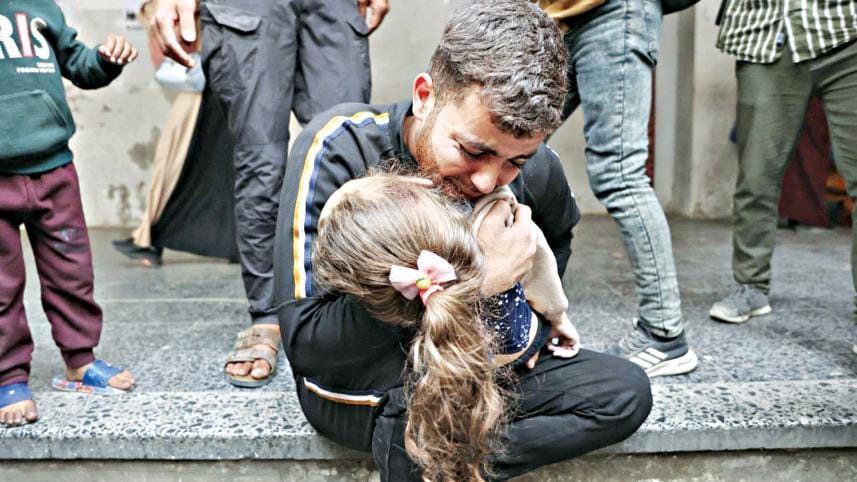‘Everything gets mowed down’

Israeli troops flattened farmland and cleared entire residential districts in Gaza to open a "kill zone" around the enclave, according to a report published yesterday that quoted soldiers testifying about the harsh methods used in the operation.
The report, from the Israeli rights group Breaking the Silence, cited soldiers who served in Gaza during the creation of the buffer zone, which was extended to between 800-1,500 metres inside the enclave by December 2024 and which has since been expanded further by Israeli troops.
Israel says the buffer zone encircling Gaza is needed to prevent a repeat of the October 7, 2023 attack by thousands of Hamas-led fighters who poured across the previous 300-metre-deep buffer zone to assault a string of Israeli communities around the Gaza Strip.
"The borderline is a kill zone, a lower area, a lowland," the report quotes a captain in the Armored Corps as saying. "We have a commanding view of it, and they do too."
The Israeli military did not immediately respond to a request for comment on the report.
The testimony came from soldiers who were serving in Gaza at the end of 2023, soon after Israeli troops entered the enclave, until early 2024.
In the early expansion of the zone, soldiers said troops using bulldozers and heavy excavators along with thousands of mines and explosives destroyed around 3,500 buildings as well as agricultural and industrial areas that could have been vital in postwar reconstruction. Around 35 percent of the farmland in Gaza, much of which is around the edges of the territory, was destroyed, according to a separate report by the Israeli rights group Gisha.
"Essentially, everything gets mowed down, everything," the report quoted one reserve soldier serving in the Armored Corps as saying. "Every building and every structure." Another soldier said the area looked "like Hiroshima".
One soldier from a combat engineering unit described the sense of shock he felt when he saw the destruction already wrought by the initial bombardment of the northern area of the Gaza Strip when his unit was first sent in to begin its clearance operation.
"It was surreal, even before we destroyed the houses when we went in. It was surreal, like you were in a movie," he said.
"What I saw there, as far as I can judge, was beyond what I can justify as needed," he said. "It's about proportionality."



 For all latest news, follow The Daily Star's Google News channel.
For all latest news, follow The Daily Star's Google News channel.
Comments